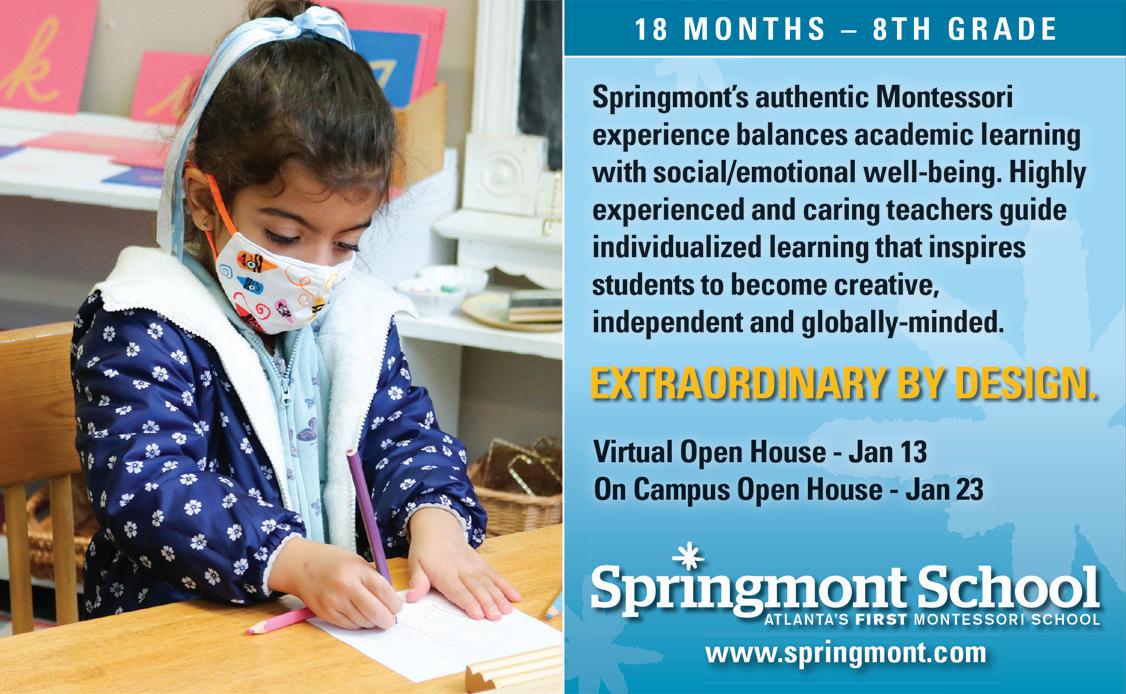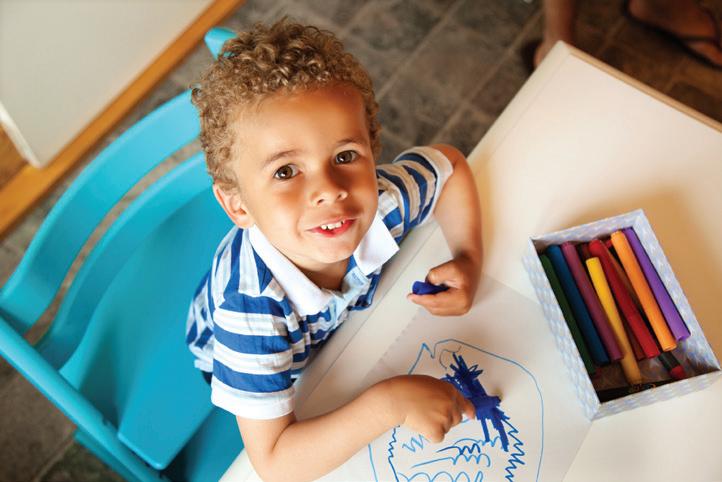
6 minute read
Prepare Your Child for Preschool Success
Prepare Your Child for Preschool
How to make the first steps on the path to school happy ones
by Denise Yearian Preschool is a wonderful time of growth in a young child’s life – a time to broaden his horizons, develop social skills and ignite a love for learning. As with any transition, it can also be a difficult time. To help your child adjust to the new environment and ease into the routine more easily, consider these tips.
n Talk it up. Weeks before preschool begins, prepare your child by using positive and encouraging words. If you drive by the building where she will be attending school, say, “Oh, look! There’s your new school. You are going to have so much fun there!” Tell your child that she is growing up and this means she gets to spend more time learning and playing with other children her age. If you, as a parent, have any reservations, choose your words carefully. Even from a young age, children can pick up on what their parents are and are not saying!
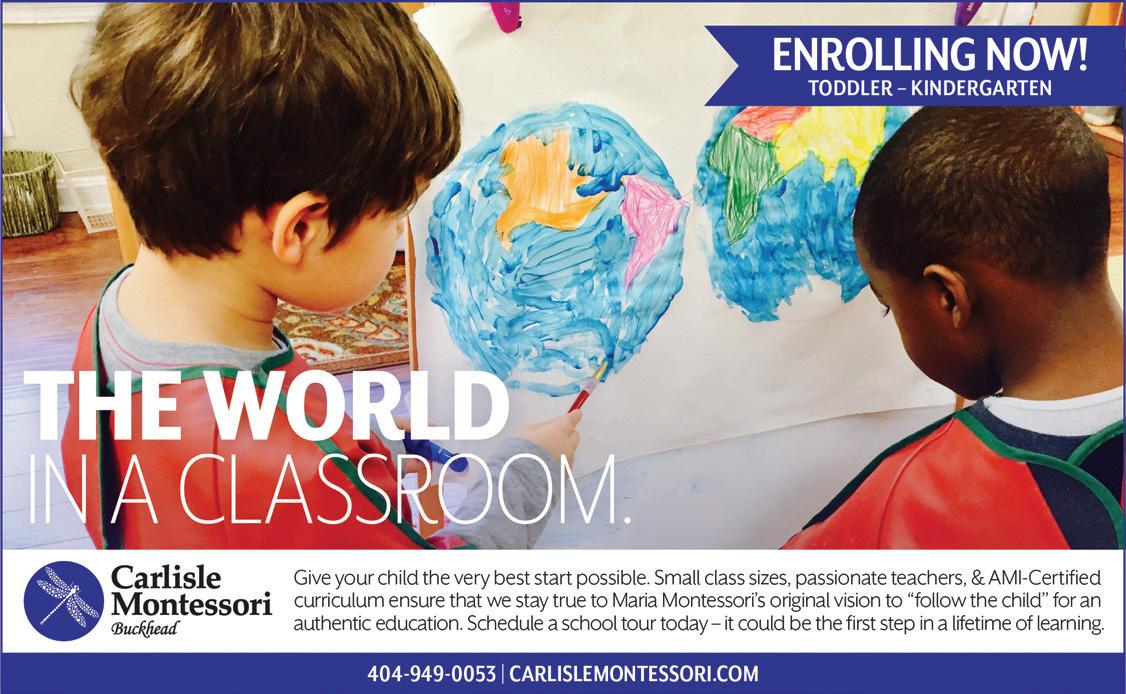
n Stop by to visit. If the school will allow it, take your child to the facility before school begins so he can familiarize himself with his new surroundings. If you know which classroom he will be in, stop by for a visit. If possible, let him meet the teacher and play with some of the toys in the room. Before leaving, take him to the playground and let him spend a few minutes swinging, going down the slide and sifting sand in the sandbox. If you are unable to visit in person, ask for a virtual tour or ask for a daily schedule that you can model at home.
n Invite others to play. If your child has had little interaction with peers due to the pandemic or other concerns, invite several children over to your house to play. It doesn’t have to be a day-long event; one or two hours is a sufficient amount of time for children to begin learning skills, such as toy sharing and peer politeness. Schedule this time when the children will be well-rested – early morning or after naptime. Also, plan a few activities but allow plenty of time for free play.
Building a love of learning, and friendships for life.
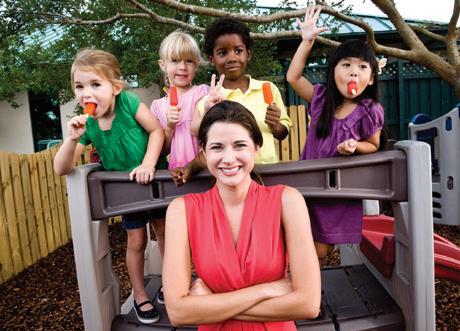
n Introduce school materials. Long before formal education begins, your child should become familiar with books, puzzles, games, crayons, scissors, glue and clay. To ease into a structured environment, set aside time each day for you and your child to work on puzzles together, play games, color, cut and glue various items and mold things out of clay. Start with just a few minutes each day and gradually increase the amount of time you spend doing it. While you are participating in an activity together, tell your child that this is just one of many fun things she will be doing in preschool. Be alert for signs she is getting bored with a given activity and stop before she gets too restless.
n Read all about it. One of the best ways to prepare your child for preschool is to read juvenile materials about first-day jitters. Library shelves and bookstores are stacked high with stories of children and animals that were afraid to go to school. Through books like these, your child will learn that he isn’t the only one with worries and apprehensions about attending school. Most importantly, he will be able to see the characters to the end of the story where they meet new friends, have lots of fun and learn that their concerns were in vain.
n Establish a routine. If you haven’t already, be sure your child has a daily routine. While it need not be as rigid as a day of preschool, structured play time in the morning (see “introduce school materials”), story time after lunch and outdoor play at the same time every day will help your child establish a routine. Consistency is key.
REGISTRATION FOR THE 2022-23 SCHOOL YEAR OPENS JANUARY 9
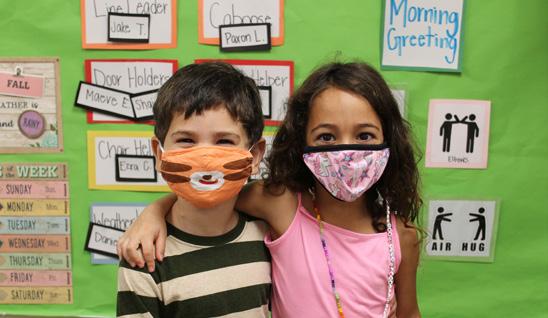
FULL AND HALF-DAY OPTIONS AGES 6 WEEKS - 1ST GRADE ATLANTAJCC.ORG/PRESCHOOL PRESCHOOL@ATLANTAJCC.ORG | 678.812.3833
DUNWOODY | EAST COBB SANDY SPRINGS

Prepare Your Child for Preschool
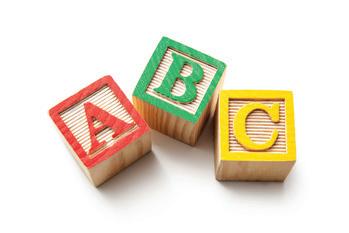
S
ince 1959 The Schenck School has successfully remediated students with dyslexia through its unique, focused, and accelerated approach which allows students to return to traditional schools.
The Dyslexia Resource, created by The Schenck School, is a community reading resource dedicated to helping students combat reading deficiencies through research, partnerships, education, and outreach programs.

For more information visit schenck.org and dyslexiaresource.org
Bringing Learning to Life
• Private non-parochial education for infants through 8th grade • Now offering Face-to-Face Instruction and Real-Time, Interactive Remote Learning with ClassFusion! • Nurturing environment featuring outstanding teachers, small class sizes with assistants, 1-to 1-iPad environment, hands-on academics, STEM, frequent eld trips and after-school programs. • After-school sports, robotics, Science Olympiad and drama.
VIRTUAL OPEN HOUSE Saturday, January 22 1:00 pm
5380 Faircroft Drive, Alpharetta, GA 30005 www.mcginniswoods.org • 770-664-7764
n Go shopping. Nothing builds excitement quicker than taking your child out to buy a new lunch box, backpack, school clothes or other needed school items. Make a day of it by first stopping by the school, shopping a little and then enjoying a fun lunch together.
n Take a dry run. The day before school begins, get your child up and out the door at the time he will need to be ready for school. If he is attending a morning program, take him for a fun breakfast after you have made the dry run at school. If he is attending an afternoon program, stop for a special ice cream cone to celebrate his upcoming day.
n Watch and wait
(if necessary).
On the first day, if your child eagerly welcomes his new environment, give him a hug and tell you will be back in a little while. If, however, he seems uncertain, tell him you will stay, but only for a few minutes. During this time, introduce him to other children, show him some of the toys and pictures around the room and help him get settled. When the time limit is up, give him a hug, reassure him of your love and leave quickly. Although there may be tears, your child will more than likely stop crying and start enjoying himself soon. Be sure to check with the school on parent procedures for drop off before committing to stay.
n Listen up. At the end of each day, find a block of uninterrupted time to listen as your child shares about his experiences. Ask what she liked about school and if there were any things she didn’t enjoy. If she is having a hard time articulating details, break it down by activities – “What crafts did you do?” “What books did you read?” What games did you play?” “Who did you sit with at lunch/snack time?” Then encourage your child to always do her best, obey the rules and be respectful of the teachers and others, and chances are, she’ll have a great time.

